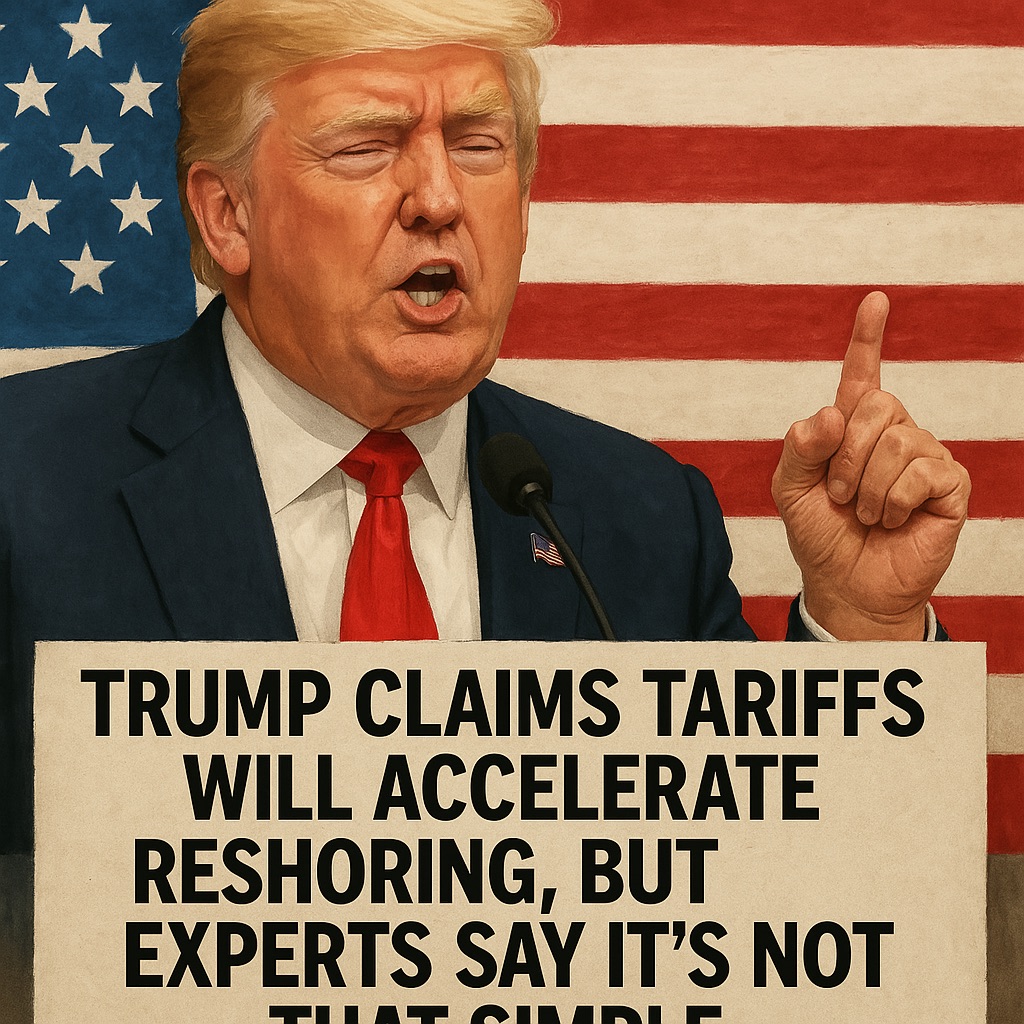In a bold statement, former President Donald Trump has asserted that imposing tariffs on foreign goods could accelerate the reshoring of manufacturing jobs to the United States. While Trump has long championed the idea of protecting American industries through tariffs, experts in the field of economics and trade argue that reshoring is not a simple or immediate outcome of tariff policies.
Trump’s Position on Tariffs and Reshoring
During a recent speech, Trump reiterated his belief that tariffs on imports are a key driver for bringing manufacturing back to the U.S. In his view, higher tariffs would make it less cost-effective for companies to outsource production overseas, thereby encouraging them to bring jobs and production back to American soil.
“Tariffs are a tool to level the playing field for American workers and manufacturers. By making foreign-made goods more expensive, American businesses will have a better chance to thrive,” Trump explained.
This claim aligns with his broader “America First” economic agenda, which focuses on boosting domestic industries and reducing reliance on global supply chains. Throughout his presidency, Trump imposed tariffs on hundreds of billions of dollars’ worth of goods from China and other countries, arguing that the U.S. had been treated unfairly in global trade agreements.
The Complexity of Reshoring
While the theory behind Trump’s remarks might sound appealing to some, experts caution that reshoring is far more complicated than simply raising tariffs. Economists argue that while tariffs may give U.S. manufacturers a temporary advantage, they don’t necessarily guarantee long-term reshoring or job creation.
“Reshoring is a multifaceted issue that involves more than just cost incentives,” said Dr. Jane Smith, a professor of economics at Harvard University. “It requires companies to invest in infrastructure, retrain workers, and adapt to new technologies. These investments are significant and often require a more comprehensive approach than tariffs alone.”
Additionally, experts point out that tariffs can have unintended consequences, such as increasing production costs for U.S. companies that rely on imported raw materials or components. This could, in turn, lead to higher prices for consumers, potentially negating the benefits of reshoring.
Global Supply Chains Are Here to Stay
Another challenge to the reshoring push is the ongoing complexity of global supply chains. Many industries, particularly those in technology and electronics, rely on highly specialized production processes and materials that are often only available from certain regions.
“Global supply chains are deeply entrenched in the world economy,” explained economist Michael Lee. “While tariffs may incentivize some companies to bring production back to the U.S., it’s unlikely that all manufacturing will be reshored. In some cases, it may be more efficient for companies to continue outsourcing production.”
Conclusion: Tariffs as One Tool, Not a Silver Bullet
As the debate over tariffs and reshoring continues, it’s clear that there are no easy solutions to the complex issues facing American manufacturing. While tariffs may help certain industries regain a competitive edge, experts agree that a broader strategy, including investment in technology, workforce development, and infrastructure, is needed to truly revitalize U.S. manufacturing.
For now, Trump’s assertion that tariffs will accelerate reshoring remains a controversial topic, with experts divided on the long-term impact of such policies.


